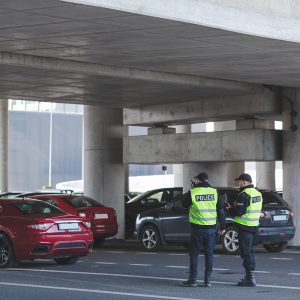Behind the Badge: Unveiling the Unseen Aspects of Highway Patrol Officers


A highway patrol officer’s life often unfolds like an intriguing story, veiled behind the high-speed chases and traffic stops that we frequently witness on television or in movies. However, much of their work goes unseen and underappreciated. To better understand these brave souls, let’s delve into the lesser-known aspects of highway patrol officers’ duties and responsibilities.
The Sun Never Sets on Their Duties
Highway patrol officers work round the clock, in shifts, to ensure public safety. Their work doesn’t follow the conventional 9-to-5 schedule. Midnight patrols, holiday shifts, and unpredictable events make their job challenging yet dynamic. It’s not uncommon for an officer to be called into work outside of their scheduled hours if an emergency arises, such as a major accident or a natural disaster.
Their Work is More Than Just Speed Enforcement
Contrary to popular belief, highway patrol officers do more than just monitor speeding motorists. Their roles encompass a wide array of tasks, including responding to accidents, assisting stranded motorists, and enforcing drunk-driving laws. They also play a crucial role in coordinating rescue operations during emergencies, assisting with disaster response, and even helping with statewide or national security concerns.
Mental Agility is a Key Skill
Highway patrol officers regularly encounter situations that require quick thinking and decision-making. Whether it’s deciding to pursue a speeding vehicle, administering first aid at an accident scene, or handling an intense confrontation, officers need to be mentally agile. They undergo extensive training to develop these skills, but real-world situations often test their resilience and adaptability.
An Integral Part of Local Communities
Although they’re often on the road, highway patrol officers are integral parts of their local communities. They participate in public safety programs, visit schools for educational talks, and interact with community members to build strong relationships. These activities help officers understand the communities they serve, while also making law enforcement approachable and relatable.
The Emotional Toll Can Be Significant
Highway patrol officers, like many in law enforcement, experience stressful and sometimes traumatic situations. They frequently encounter accidents, injuries, and fatalities, which can have a profound emotional impact over time. Many departments offer support services, such as counseling and stress management programs, to help officers cope with these challenges.
The Importance of Physical Fitness
Highway patrol officers need to maintain a high level of physical fitness. Their work often involves physical exertion, like lifting heavy objects, chasing suspects, or extracting individuals from vehicles. Regular fitness tests and continuous training help them stay prepared for these physically demanding situations.
A Strong Sense of Duty
Despite the challenges, many highway patrol officers find great satisfaction in their work. They take pride in serving their communities and ensuring the safety of motorists. Their strong sense of duty and commitment is often what drives them to face the daily challenges of their job with resilience and perseverance.
The Gravity of Traffic Education
Highway patrol officers also play an essential role in educating the public about traffic laws and safety practices. They often conduct or participate in workshops and presentations to raise awareness about the importance of road safety. By doing so, they aim to prevent accidents and enhance the overall safety of the highways they patrol.
In conclusion, highway patrol officers wear many hats and play an integral role in maintaining law and order on the highways, while also protecting and serving their communities. The next time you see a highway patrol officer, remember that there’s much more to their role than meets the eye. Their job is a complex blend of duties and responsibilities, all aimed at making our highways safer places to travel.
